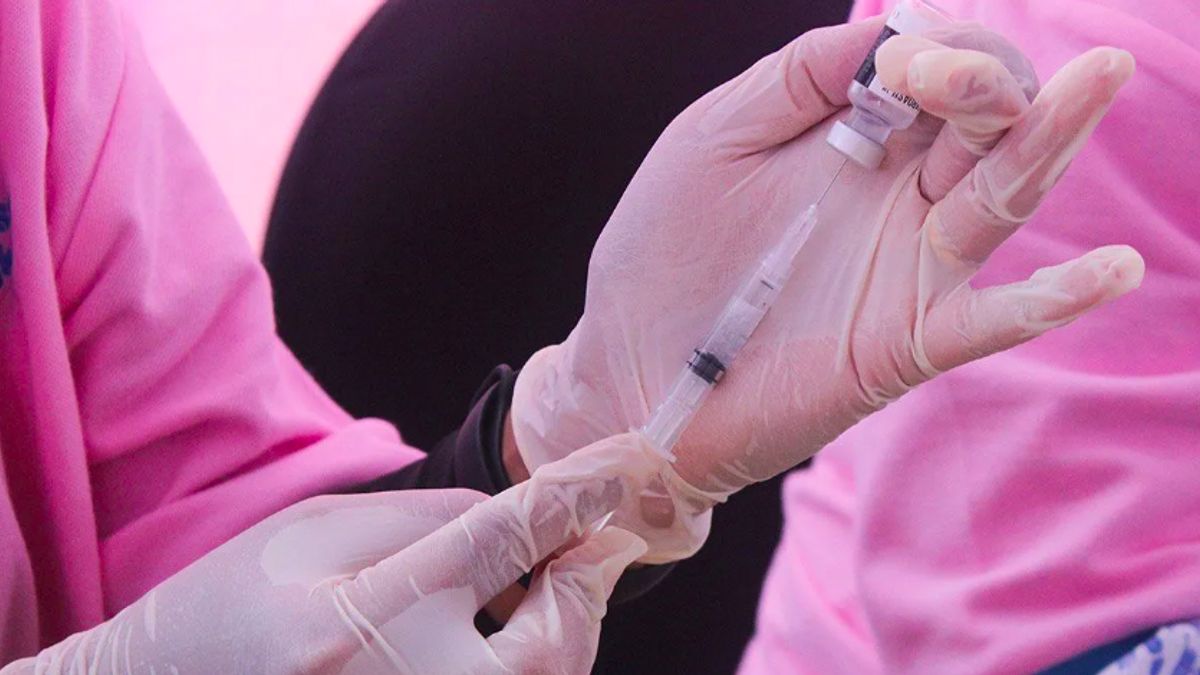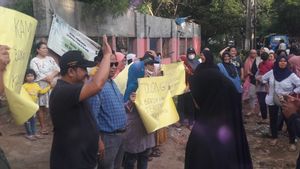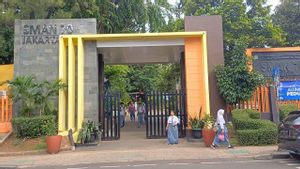JAKARTA - Effective prevention efforts in breast cancer can be a priority in reducing the incidence rate of this disease. One of the innovations currently being developed is breast cancer vaccines that show promising results as a preventive measure.
According to the results of a clinical trial conducted by the Washington University School of Medicine in St. Louis, a nebulan DNA vaccine has been developed to prevent tumor recurrence in triple-negative breast cancer. This vaccine can be well tolerated and effectively stimulates the immune system.
Quoted from Medical Daily, triple-negative breast cancer is called that because cancer cells do not have estrogen hormone receptors or progesterons (ER or PR) and proteins called HER2.
This is an aggressive type of cancer that grows faster, and accounts for about 10-15 percent of all breast cancer cases. This cancer is more common in women under the age of 40, black women, or those with BRCA1 mutations.
Currently, there is no therapy targeted specifically for triple-negative breast cancer, so treatment involves traditional approaches that include surgery, chemotherapy, and radiation therapy.
The researchers believe that this new vaccine has the potential to become a targeted treatment strategy to prevent tumor recurrence in triple-negative breast cancer.
In phase I trials, the researchers evaluated the safety of this experimental vaccine in 18 patients with triple-negative breast cancer that had not spread to other organs and found that half of the patients remained cancer-free three years after treatment.
SEE ALSO:
Since this is an early-stage trial, the main focus is on evaluating vaccine safety, and there are no control groups to assess efficacy.
However, the researchers used historical data from triple-negative breast cancer patients treated with standard care to understand their effectiveness. The results were published in Genome Medicine.
"This result is better than we expected. Of course, this is not a perfect comparison, and we are aware of the limitations of this type of analysis, but we will continue to develop this vaccine strategy and continue randomly controlled trials that compare standard treatments plus vaccines with standard care only. We are motivated by what we have seen in these patients so far," said senior author Dr. William E. Gillanders, as quoted by Antara.
"We are excited by the promise of this neoantigen vaccine. We look forward to bringing more of this kind of vaccine technology to our patients and helping to improve the outcome of treatment in patients with aggressive cancer," added Dr. Gillanders.
The English, Chinese, Japanese, Arabic, and French versions are automatically generated by the AI. So there may still be inaccuracies in translating, please always see Indonesian as our main language. (system supported by DigitalSiber.id)

















